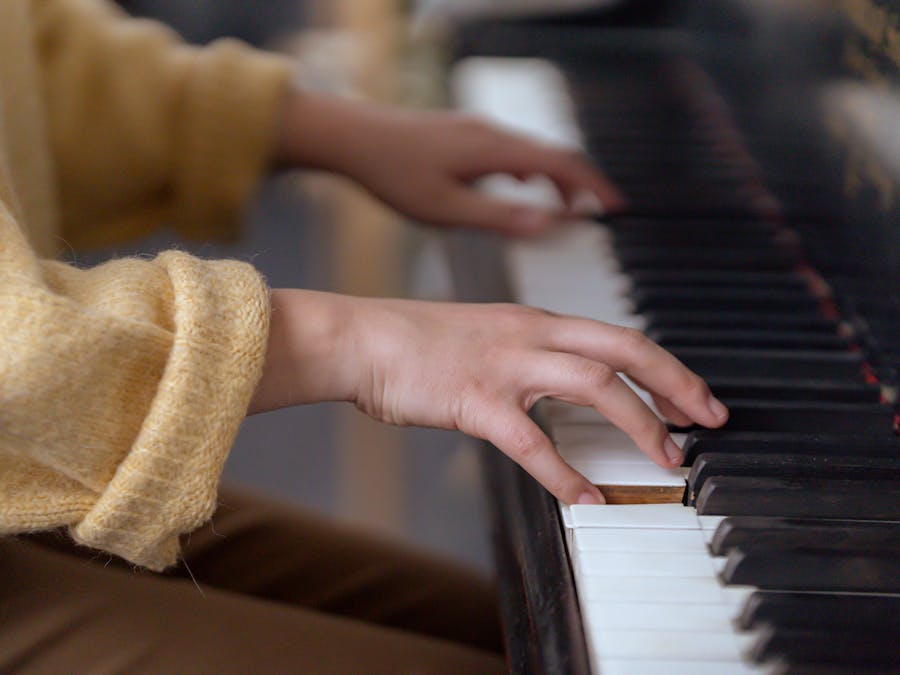 Piano Guidance
Piano Guidance
 Piano Guidance
Piano Guidance

 Photo: Eren Li
Photo: Eren Li
A lot of people assume that you MUST have perfect pitch (essentially a musical super power) to be able to play guitar parts of a song just by simply listening to the music. Well, it's not true. Having the gift of “Perfect Pitch” or “Absolute Pitch” is NOT a requirement to playing guitar by ear.

Once you're comfortable, lay your hands either side of the center of the keyboard. Your fingers should be parallel to the keys, hovering somewhere...
Read More »
Top 10 Best Motocross Bikes of all time Yamaha PW50. You probably weren't expecting this bike to top our list, but for us the Yamaha PW50 is...
Read More »A lot of people assume that you MUST have perfect pitch (essentially a musical super power) to be able to play guitar parts of a song just by simply listening to the music. Well, it’s not true. Having the gift of “Perfect Pitch” or “Absolute Pitch” is NOT a requirement to playing guitar by ear. Playing music by ear is a skill that anyone can learn through proper discipline and purposeful training methods. In the following sections I will dive into some of the reasons why Perfect Pitch is NOT essential to possessing the amazing ability to listen to a section of music and be able to replicate it with an instrument or even your voice. I know it’s possible, because I’ve learned how to do it myself. Playing guitar by ear is a learned skill, not some inherent talent obtained at birth. Sadly, I used to believe that playing music by ear was reserved strictly for the “lucky people”. The people that I thought had some magical gift that gave them the ability to listen to a song on the radio and just grab their guitar and play it. “WHAT!!??!” No tabs, sheet music or youtube video. Nope, just grip it and rip it. Well, what I didn’t know is that these “lucky people” had actually just spent time and effort to hone the skill. Possibly by practicing in a structured discipline like Interval Training or Singing the Major Scale (aka Solfege). Or maybe they just had the confidence to listen to a song repeatedly and plucked around with different notes on the fretboard until they found which note or chord sounded correct. Either way, they were practicing, learning, growing their skill. They were putting themselves in the position to internalize/burn the tones and differences of how the notes sound into memory. The vast majority of the population does NOT have Perfect Pitch, sometimes called Absolute Pitch. Most people have what is referred to as Relative Pitch. Relative Pitch is defined by Wikipedia as “the ability of a person to identify or re-create a given musical note by comparing it to a reference note and identifying the interval between those two notes“. What this means is that once a given note is known/established, you can figure out a sequential note based off of how it sounds compared to the known note. See in music, if two notes are played in sequence, only three possibilities are available. The sequential note is either the exact same pitch, a higher pitch, or a lower pitch. These are the only options. So when you are trying to understand a piece of music that you are hearing, once you have established a note or chord, you can first determine that the next note is either the same, higher, or lower. Let’s say that you have determined the note sounds lower. You could then simply start on the known note and try each note one at a time getting lower and lower working your way down the tones on your instrument until the pitch you are hearing on your instrument matches what you heard in the music. No magic required. Just listening closely to the note you are hearing in the music and trying to match it on your instrument.

junior In the US, a student in the eleventh grade is typically referred to as a junior. The vast majority of students who are classified as juniors...
Read More »
Playing musical instruments is not only fun; it is also a great brain exercise. Learning how to play an instrument positively influences your I.Q....
Read More »Now, with that being said, there are some other tools and strategies you can add to your ear playing arsenal… Practicing listening to musical intervals strengthens your ear’s ability to know what you’re hearing. An AMAZING way to improve your ear’s listening skills is to play through the Major Scale on your guitar while simultaneously singing each note out loud. I’m not talking about trying to sing like Michael Jackson, I just mean matching the sound that is coming out of your guitar with your voice. A great way to practice this is through learning Solfege. If you don’t know the term, it refers to assigning a word to each respective note of the major scale that you can sing. You’ve heard it before. It’s “Do, Re, Mi, Fa, Sol, La, Ti, Do” or “Doe, Ray, Me, Fah, Sol, La, Tee, Doe“. It sounds silly right? “Sing the song from the Sound of Music??” Yes, do it. I can personally vouch that this activity significantly increases your ability to hear different interval changes in music. Here’s where the beauty of this exercise lies. You don’t have to stick to strictly running through the scale from end to end linearly. After you have become comfortable singing along with the scale from end to end, forwards and backwards. Try skipping directly to and from different intervals of the scale. For instance, try singing the notes “Do – Mi” or, “Do – Fa“, or “Do – Sol“. You get the picture. What you are doing in this exercise is training your brain and ear to hear what different note or chord transitions sound like when played with one another. After practicing this exercise for a while you’ll be able to recognize these changes when they’re played within the notes or chords of a song. If you are learning a song that plays the chords G major then C major, your brain will begin to notice/recognize that this sounds exactly like the “Do – Fa” or “I – IV” note/chord change that is found within the major scale. Similar to any other skill, it doesn’t come instantly but with repetition and persistence you will DEFINITELY notice a difference in you musical aural abilities over time. Many songs that were composed by a guitarist use a similar set of specific chords/scales. It’s not a coincidence that it seems just about every other song written on guitar is written in the key of G major. This is due to the way that the guitar is tuned.

According to a 2020 report from Thumbtack, a piano teacher will charge anywhere from $40-$100 an hour for private lessons and $30-$50 per hour for...
Read More »
For beginners or players on a budget looking for an authentic playing experience, you cannot beat the sound and feel of a digital piano. For...
Read More »
Many children with autism like to play piano with just their index fingers. They might not even be aware that they have other digits to use or that...
Read More »
EVH Wolfgang guitars Eddie Van Halen: A Master Of The Guita While he played a variety of instruments throughout his career, his self-built...
Read More »
In the 4-3 schedule, each team works a three-week cycle that consists of: Four days ON (first shift) Three days OFF. Four days ON (second shift)
Read More »
There are many amazing videos online of dogs playing the piano, sometimes even full songs, but often these are well-trained dogs. Like other...
Read More »